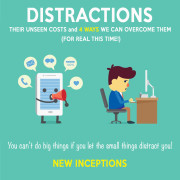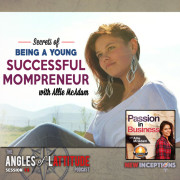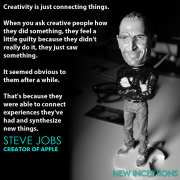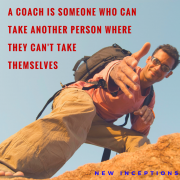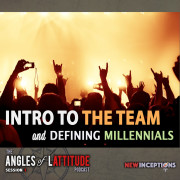Distractions: Their Unseen Costs and 4 Ways We Can Overcome Them (For Real This Time!)
You Can’t Do Big Things if You Let the Small Things Distract You
Distractions. Our lives are filled with them. From emails, to texts, to messages on various social media platforms, and even the TV and all that goes with it. Distractions are everywhere. What’s worse, is that many times we feel that we let them run our lives with little power to do anything about it.
The Problem with Distractions…
As Creators, we need to be able to do focused work. Some would even call this hustling.
Hustle is about focus, not frenzy. It’s not doing more, it’s doing less, so you can focus on what matters most. http://t.co/11I7RX7hAr
— Jon Acuff (@JonAcuff) June 20, 2015
Cam showed a video yesterday with Richard Kuo where they talked about how Richard actually plays video games in moderation.
That’s where I’m at myself.
For the most part, anything is ok in moderation. However, neither Richard nor myself let videogames keep us from achieving things in our work or business. I think we both survived a stigma that questioned why we were gamers in the first place. Hell, people still ask Maria why I game. But to be honest, I enjoy it. And if any of those people were to ask me directly, I would simply ask them, “Why do you watch TV all the time?”. I’m sure I’d get the same answer.
So the problem isn’t so much the distraction itself. The problem is when the distractions get us off course of what we’re supposed to be doing. Or, even worse, when people think the distraction is what we’re supposed to be doing.
Distractions are Around Us Everyday of Our Lives
The reason that so many of us fall to distractions isn’t because we’re dumb. It’s that it’s what we’ve had in our lives from pretty much birth.
When your parents first sat you down in front of a TV, do you think it was to teach us something or to distract us so that they could get something done? I know for many of us millennials, we grew up with the TV essentially being a parent.
Today kids are growing up with mobile tech, but it’s essentially doing the same thing. Distracting them so they aren’t doing anything meaningful.
One of the reasons I’ve never really watched reality shows is because all it is, is a distraction. Sitting around and watching other people succeed at life? You’ve got to be kidding me! I can be having that success myself if I put my mind to it. Not necessarily singing or dancing, or whatever the current trend is, but doing the thing that I’m good at. I hope you feel the same way about your life. We must realize that when we’re constantly checking into other people’s agendas, we’re actively checking out of our own life.
With all of these distractions around us, it becomes the norm. But does that mean it’s what we’re supposed to do? Well, pop culture would say that’s what we’re supposed to be interested in. But, seriously, it doesn’t have to be.
Distractions as “Busy Work”
Those of us who have jobs still or are lucky enough to have a lot of clients probably get a ton of email. While staying up with email might seem to be a good goal at first, it simply becomes a huge problem as we get more and more.
Back in the summer of 2014, Pat Flynn did a podcast with his new email assistant. They talked about why he hired her and what it was that she exactly did. Answering all of his email was simply getting out of hand. He didn’t have the time to sort his emails, answer them, and then do the real work to build his business.
Even though the email had to do with his business, it was disconnected from his strategy and purpose. How many things can you think in your business besides email that could be labeled as a distraction? Checking Twitter and Facebook all day?
I mean, you might not have a problem with Facebook, but some people do. (And if you’re one of those folks and are trying to get more work done – try this Chrome extension to help you limit the use of particular sites.)
Unseen Costs of Being Distracted
Now let’s think about something for a second. In LTD, I learned about what’s called surface cost and unseen cost. One of the things that is discussed is the unseen cost of not talking to people to get started as an IBO. It was said that you’re passing a possible Platinum every day. You just weren’t aware. In unseen cost, passing this Platinum could be costing an IBO upwards to $50 grand a year, possibly more? Knowing this helped me open up and talk to everyone.
Their answer to eliminating distractions was to simply cut them out of your life. Have a TV? Cut your cable. Are you a power gamer? Sell your system.
The problem with this (and I feel many of Cam’s followers have) is that when you do these things, you’re going cold turkey. For some, it might work. For others, it might be the worst thing for them to do. We need to realize that for some, addictions are like drugs. Withdrawal in itself can be a major hurdle… possibly leading to depression if not dealt with properly. (Unless you have a support system in place, or something else to take your mind off of not having this distraction, then there’s a good chance you might seek something else to distract you.) I knew I couldn’t go cold turkey. I enjoyed gaming too much at the time.
In a more relatable life, let’s just think about the unseen cost of being simply distracted. Now, let’s just take a conservative number of four hours a day. Say 2 hours at home and 2 at work of just being engaged in social media, TV, and video games. 4x7x52(weeks)x78.7(average lifetime) = 114,587.2 hours. That’s equivalent to 13.08 years. Now let that sink in there.
If you can’t let that sink in, let’s make it a little more relevant.
It means, that of the writing of this post, since 2003, you would have been doing something on Facebook, or sending texts, or doing something that really means nothing NONSTOP.
In 2003, I was 21. I remember turning 21. The actual night of my 21st birthday, I bought my own alcohol from the supermarket. No bars for me. I wanted to go about it in a mature fashion. That’s also the year that I changed my major to Electrical Engineering Tech at Purdue. Where I met some of my long time friends.
How about you? What were you doing 13 years ago? Can you imagine all that time spent on Facebook including the time you’ve spent sleeping? I sure can’t!
And if that wasn’t enough, let’s just say that you have a annual income from anywhere to $25,000 (yes, in Indiana it’s a thing) to $80,000. Simply doing that math you would have lost $325,000 on the low end and $1.04 million on the high end.
If you’re like me, and you try to rationally explain the next time you’re thinking that 4 hours a day of ::takes a breath:: … TV, playing on your phone, browsing the web, playing with your apps, and gaming… ::gasp:: isn’t that big of a loss, hopefully these numbers will put it into perspective.
How to Overcome Distractions: Being Undistracted and More Purposeful
So how do we alleviate our pull to distractions? Well, that’s a good question. I mean, I struggle with it myself. By no means am I some perfect guru who’s highly achieving. That’s just not me, and I even struggle at times in thinking that I’ll eventually be making New Inceptions a living.
But I’ve chosen this path. And now, I have to focus and make the best of it. And the way I’m going to do that is through what’s called Deep Work.
I recently ran across this phrase when I heard of a guy named Cal Newport. Cal is an Assistant Professor of Computer Science at Georgetown University, and during the interview I heard with Srini via Unmistakable Creative, they talked about two kinds of training that we can do when it comes actually performing Deep Work.
- Active Training It’s called training for a reason. Just like when you’re working out in the gym or learning any skill type, you want to start small and work your way up to higher and higher levels. In the interview, Cal said that one of the ways that he practices this is by simply holding a thought relative to what we’re creating as we’re walking. Like meditation, if you feel your mind straying on other thoughts, you bring it back into whatever you were thinking. Focus on that one thing. Ideally you want to go deeper and deeper into that thinking by coming to a conclusion on one thought and then moving from there to another. Hold that thought and then go deeper. Repeat as much as you can.
- Passive Training The key here is to simply keep your attention from jumping from distraction to distraction. Even though you might be simply filling up your car at the gas station, you need to fight the urge to check your Facebook or Twitter feed if you’re notified of an event. He said that this will help you build your executive center’s ability to focus. And just like when it comes with training other muscles, you’ll have a better chance of actually having better focus at a higher level the next day.
Srini also adds in his free download (that’ll you’ll have to listen to the podcast to find out how to get) ways that we can actively setup our day to day life for Deep Work.
There’s two in it that I already do:
- No email or social media after 7pm until 10am. If this is too big of a time period for you, there are tools to help you not visit certain sites. He mentions Heyfocus, Freedom, and Rescuetime. Another Chrome Extension I’m aware of Momentum that replaces your New Tab screen with a screen that reminds you what you want to get done in a particular day.
- Eliminate Unneeded steps in accomplishing your goals. Pretty straight forward. The more steps there are to getting something done, the longer it’s going to take and the less likely you are in getting that particular thing done. Even if there’s things you can’t eliminate, perhaps do them the night before you close up so the next day you can quickly start from where you began?
He adds a few more tips in that freebie about your phone that might help if you have struggles there.
Homework:
This week, I’d say listen to the conversation with Cal if you don’t do Deep Work on a regular basis. Do it as you’re driving somewhere, when you’re at the gym, or whenever you generally listen to music or podcasts. I want you to understand why it’s important to do Deep Work. If you’re wanting to call yourself a Creative, and in particular, a Renegade, you need time to take yourself to that next level. I don’t want you burn yourself out if you’re not used to doing your own work over prolonged periods of time.
If you already do Deep Work, what kinds of things do you do to keep yourself from letting distractions get the best of you that I didn’t cover above?

